
The CYF Learning Center (Children and Youth Development Foundation), in collaboration with the Equitable Education Fund (EEF) Thailand, the Nakhon Phanom Provincial Education Committee, the Juvenile Observation and Protection Centre of Nakhon Phanom Province, and the Nakhon Phanom Out-Of-School Children Development Network, has developed the innovative “Mobile School.” This initiative aims to deliver education directly to the target groups, enabling children to access learning opportunities based on their interests anytime and anywhere.
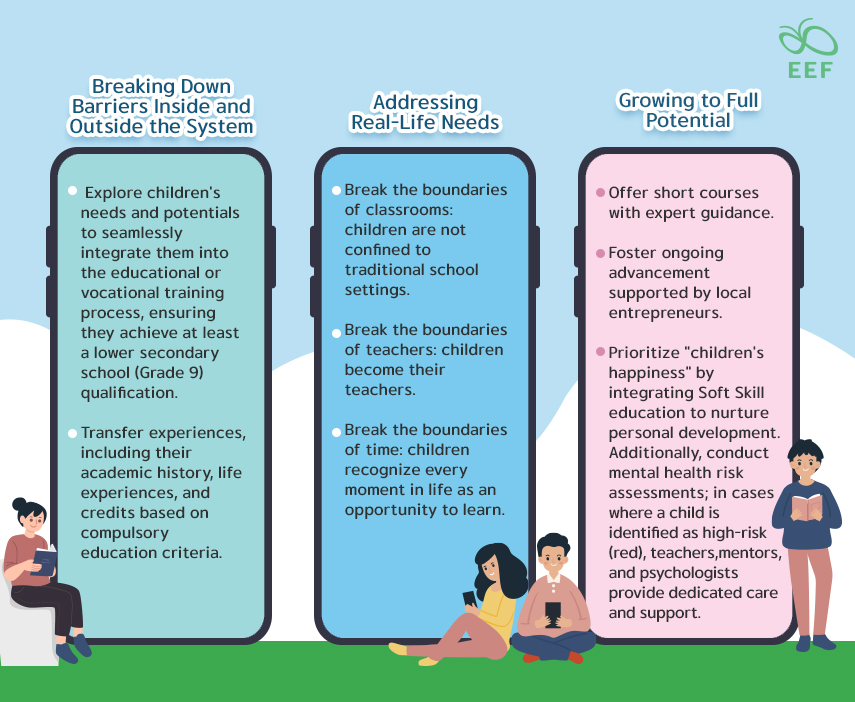
Target Group: Lower secondary school children, primarily those out-of-school children and those released from Juvenile Observation and Protection Centers.
Introducing the Mobile School
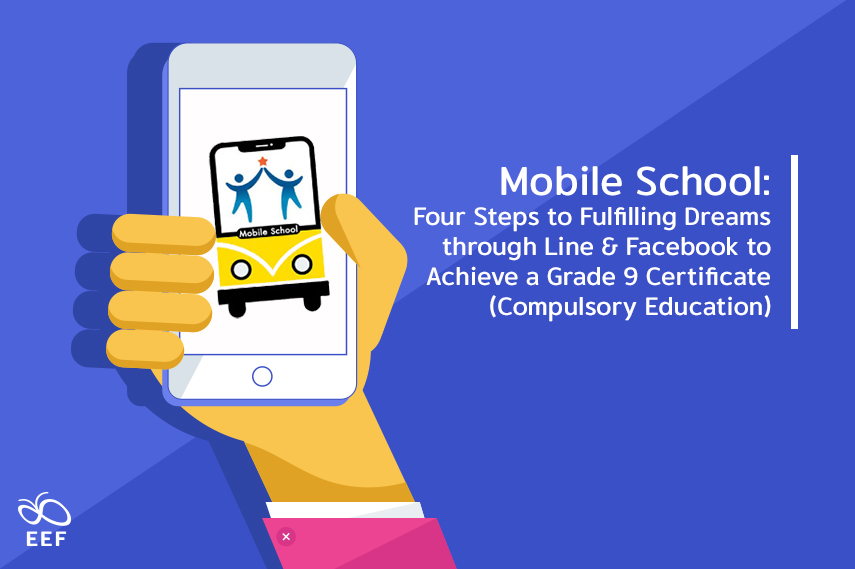
The Mobile School utilizes applications on online platforms such as Facebook, TikTok, Line, and Google Classroom for learning. Designed like gaming experiences to actively engage children, it incorporates continuous assessment and evaluation through an AI system, enabling real-time tracking of learning progress.
Mobile School: Four Steps to Fulfilling Dreams through Line & Facebook to Achieve a Grade 9 Certificate (Compulsory Education)
- Explore: Children learn from their interests and share them online, and teachers connect these experiences to the core curriculum indicators of the Office of the Basic Education Commission (OBEC).
- Exhibit: They showcase their favorite learning experiences, such as agriculture, in a dedicated Facebook group.
- Excel: Progressing from the exhibition, coaches identify children’s strengths, facilitating vocational training opportunities.
- Expertise: Children transform their passions into professions, generating income from what they love.
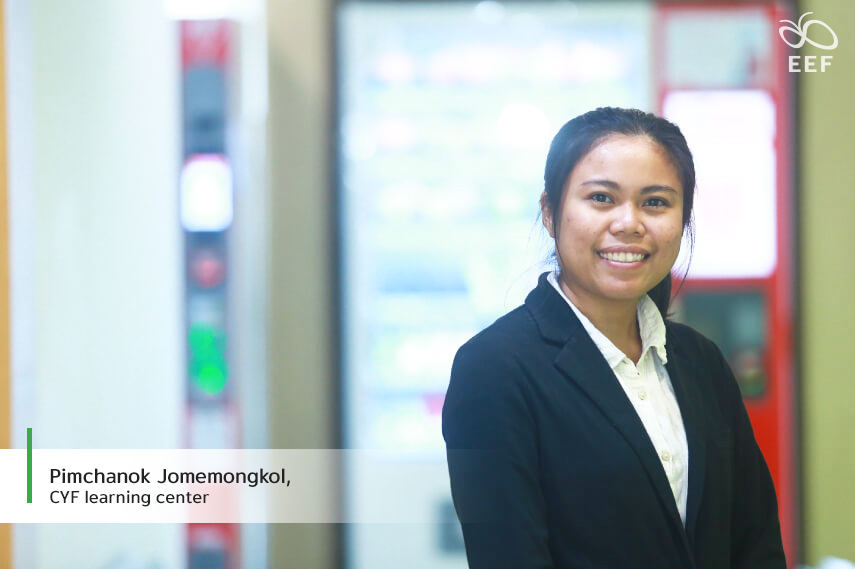
Pimchanok Jomemongkol, CYF learning center
Returning Control of Education to Children
“Dropout rates among children span from elementary school but are most prevalent at the secondary school level, particularly affecting economically disadvantaged children who cannot afford transportation to urban schools. Consequently, they often join the family workforce across different districts and provinces. This initiative stemmed from surveys revealing parental shame and reluctance to acknowledge their children’s dropout status. Thus, we needed a fresh approach, leading to the establishment of a learning center aimed at seamlessly integrating learning into children’s daily lives. This gave rise to the concept of a mobile school, empowering children to shape their educational paths.”
“Our learning center operates under the educational jurisdiction responsible for formal schools in the area. Initially, concerns surrounded removing classrooms and teachers from children’s lives, including transferring experiences, structuring learning schedules, and assessing outcomes. Without a supportive network, achieving our current success would have been impossible. For instance, knowledge exchange provided robust information for negotiating acceptance with district authorities. The Nakhon Phanom model, involving 21 network partners addressing out-of-school children, has shown tangible results, ensuring children receive official educational qualifications through collaboration with all stakeholders.”
“Formerly, formal education in schools is often detached from students’ realities. The mobile school dismantles these barriers, returning educational control to children. They can learn anytime, promoting lifelong learning. Children recognize their value as their past experiences, such as farming or rubber tapping, can translate into academic achievements.”
“Currently, our focus remains on enhancing every learning experience and aspect of children’s lives, offering diverse pathways for personal growth. Education must adapt to the unique contexts of individual lives, as seen in Nakhon Phanom’s diverse ethnic and economic demographics. Thus, education must be personalized. The mobile school empowers learners to self-direct their education, irrespective of their circumstances, encouraging exploration and knowledge pursuit aligned with their interests.”
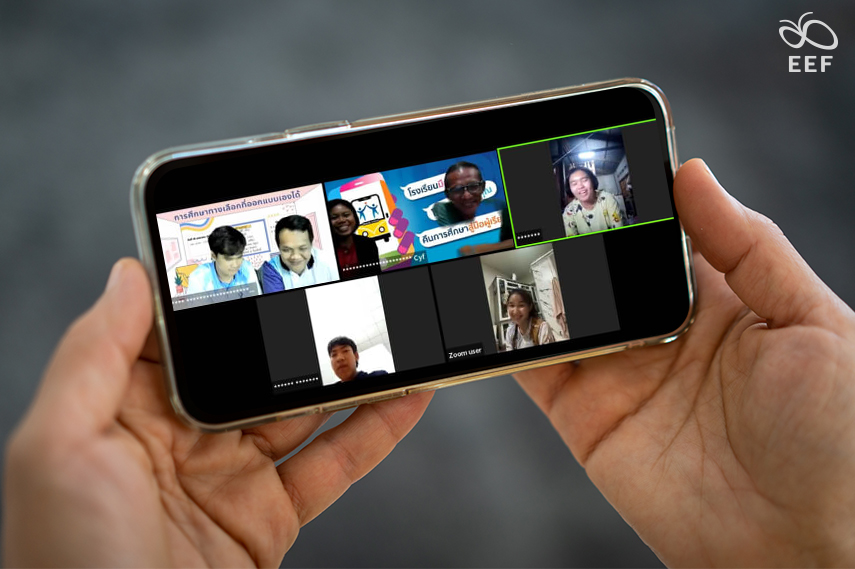
Fulfilling Children’s Dreams through Educational Options
“A young individual was released from the Juvenile Observation and Protection Centre. Seeking to break free from the cycle of drug addiction, he relocated to Bangkok for daily labor while continuing his education through the mobile school. Upon graduation, we awarded him his Grade 9 certificate. Transitioning from daily labor, he secured a full-time position at a company with a monthly salary increase from 8,000 to 15,000 baht, along with benefits and social security. He expressed gratitude, surprised that an educational qualification could elevate his life in such a way. By offering innovative options, we can fulfill dreams and create opportunities for individuals.”
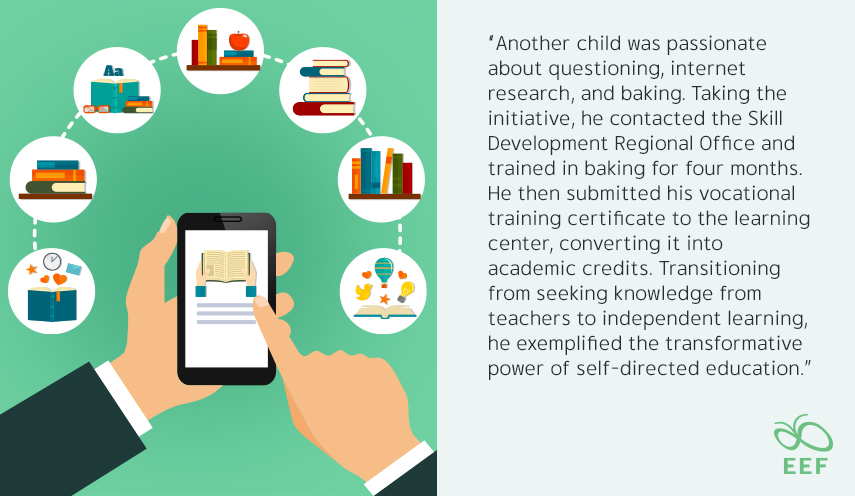
“Another child was passionate about questioning, internet research, and baking. Taking the initiative, he contacted the Skill Development Regional Office and trained in baking for four months. He then submitted his vocational training certificate to the learning center, converting it into academic credits. Transitioning from seeking knowledge from teachers to independent learning, he exemplified the transformative power of self-directed education.”
“Another story highlighted the uniqueness of each person’s educational journey, often requiring the right timing. Consider Jane from Amnat Charoen province, who dropped out of the education system during Grades 10-11 because the school expelled her due to depression. Through online research, Jane discovered the mobile school and joined monthly Zoom sessions to share learning experiences with peers. Exposure to diverse perspectives broadened her worldview and alleviated her depression. Today, Jane holds a Grade 12 certificate, a testament to her resilience and the transformative impact of mobile school.”
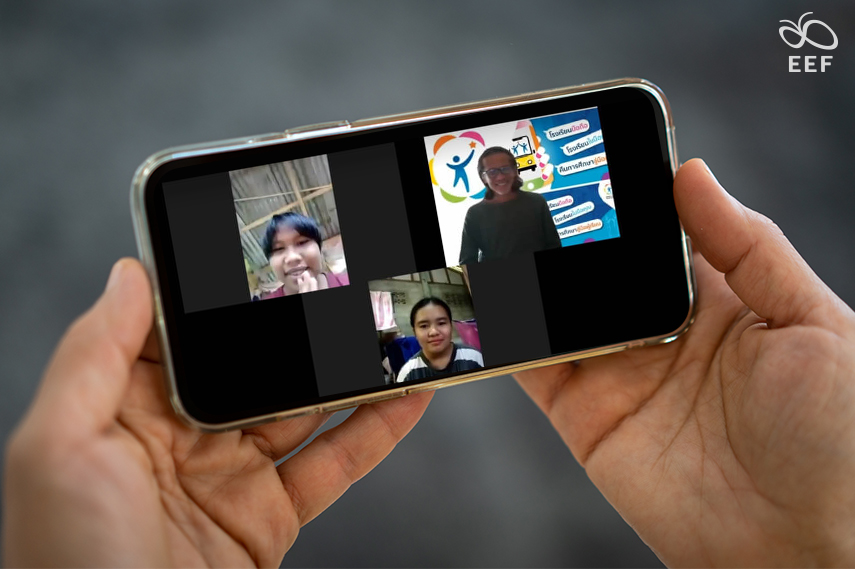
Janejira Pachuar (Jane), aged 19
“I dream of working in healthcare, particularly as a nurse, so I sought a place to study and discovered CYF. I couldn’t continue in the traditional education system initially because I didn’t realize I was struggling with depression. After taking a semester off, I needed to find a new school that better suited my needs, so I opted for a more flexible and accommodating approach. The mobile school seemed ideal as I tend to be reserved, making this learning a perfect fit for my lifestyle. The school holds monthly Zoom meetings where we share life experiences and exchange ideas. The teachers serve as mentors, guiding us through our educational journey. This environment has allowed me to open up, gain clarity about myself, make friends, and pursue my studies simultaneously.”

